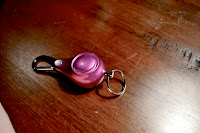 |
| Photograph by Hannah Schultz |
My room is currently
filled to the brim with Donate Life Week materials. And since it has consumed my life the past five days, it seems only natural to write about it. So, what exactly
is Donate Life Week? I know you want me to tell you, don't pretend you don't.
In order to understand Donate Life Week, you need to understand Donate Life Northwest. In order to understand Donate Life Northwest, you need to understand what being an organ donor is. Being an organ donor consists of donating your organs to people who need them when you pass on, which we all inevitably will. People usually register at the DMV when they get their license, but now you can fill out a paper form or register
online.
Donate Life Northwest is a non-profit organization that works to spread awareness for eye, organ and tissue donation in SW Washington and Oregon. This semester I started a Marketing/PR internship with them in downtown Portland. In all honesty, I knew
very little about issues surrounding organ donations before this internship. I researched as best as I could, but there's nothing quite like being thrown into a cause headfirst. I've now interviewed four transplant recipients (people whose lives have been saved through organ donation), and will be writing their stories within the next month. Those experiences alone profoundly impacted my perspective. And it's a perspective I'd like to briefly share.
In the United States, a person dies every minute and a half
waiting for a transplant. This is partly because there is a huge divide between people who say they support donation, and people who actually take the time to register. So why aren't people registering? It could be due to one of the top ten myths, some of which include, "The hospital won't try as hard to save me if they know I'm a donor," or "I don't want my organs to be sold on the black market," or "It goes against my religion."
To address the first myth, the hospital staff that tries to save your life is
not the same as those who take care of your organs. It's two completely separate sets of doctors. The second myth is constantly perpetuated in the media, but there is no black market for organs in the United States. And honestly, would anyone in the black market really care whether or not you're registered? I think not. Last, all major religions accept and support being an organ donor. One of the few that don't are Gypsies.
 |
| Photograph by Hannah Schultz |
Besides these myths, I've come to learn that a lot of people are just really uncomfortable with the whole idea of donation and dying. They don't want to think about the fact that someday they'll be gone. And it's strange to imagine your body parts in someone else. But I think making the decision to be a donor is bigger than yourself and your feelings of discomfort. One human body can save up to eight lives, and enhance up to fifty. By making the decision to be a donor, you're giving other people a chance to
live. Isn't that more important than anything else? Furthermore, if you or someone you loved needed a transplant, wouldn't you hope that someone else had registered as a donor?
This last week I put together Donate Life Week at UP. The primary goal was to give students the opportunity register and to spread awareness. We got eighty-six new students to register, and I dealt with both positivity and negativity throughout my time at the booths. It was a pretty humbling experience, but overall, I consider it a success. Junior Katy Portell spoke about her own transplant during our Monday night kick-off event. During one of our interviews she said, "Being an organ donor isn't about death, it's about life. All of the big moments and little moments, every laugh, cry, triumph and failure...my donor
gave me life." More than anything, I think when you make the decision to become or not become an organ donor, at least learn the facts. Make an informed decision. That's what Donate Life Week was all about.
With all of that said, what do you think about being an organ donor? Is it something you've ever thought about before? And why do you think people often choose not to register?













